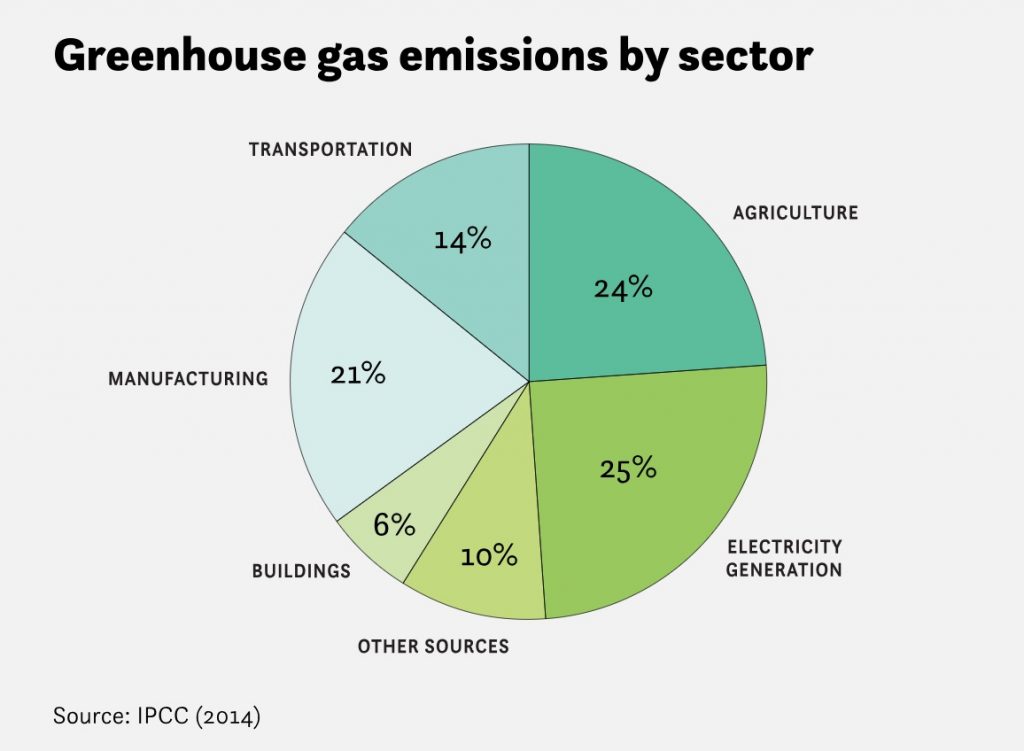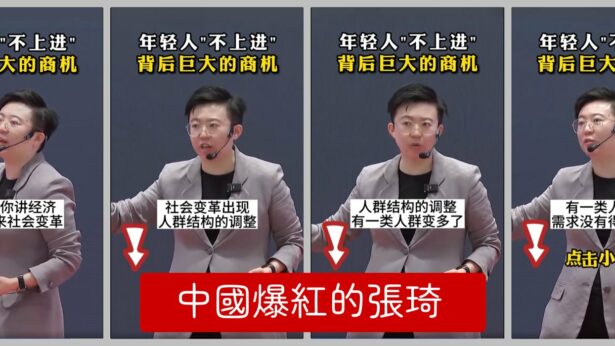我猜測,大多數的人們期待這個世界變的更好,但也只有坐著去期待而己。如果每個人都努力讓我們的世界、所處的社會變的更好,地球應該就會更適合人類居住。
轉貼:We didn’t see this coming
https://www.gatesnotes.com/2019-Annual-Letter
中譯:
世界正在進行中的 9 個驚奇的點。
In this year’s annual letter, we’re highlighting nine more things that have surprised us along this journey.
1.非洲是最年輕的大陸
Africa is the youngest continent
人口紅利是分析哪些國家未來會發展的其中一項指標。不像其他大陸,人口組成越來越老,非洲人口中位數保持在很年輕的水準。這可能是一項資產但也可能是一股不穩定的力量。透過好的教育、健康與衛生的進步,非洲這股力量未來可能會幫助到其他的大陸地區。
Africa is the youngest continent
https://www.youtube.com/watch?v=WO2yLOpJaK0
2.基因家譜檢測技術
At-home DNA tests can find serial killers—and could also help prevent premature birth.
2018年底「基因家譜刑偵學」這個技術幫助舊金山政府破獲了一起幾十年前的連續殺人犯案件。
利用基因家譜檢測技術 (At-home DNA tests) 幫助孕婦提早準備應對早產。很多嬰兒死於早產,或早產可能帶來後續不少問題。蓋茲他們贊助的研究機構 23andMe 發現早產跟身體六個基因可能有關。知道孕婦有沒有這幾個基因,就能事先知道早產的可能性,提前做一些準備。
When police used genetic test results to catch the Golden State Killer last year, the story made headlines around the world. But it’s not the only discovery to come out of at-home DNA tests. By looking at more than 40,000 samples voluntarily submitted by 23andMe users, scientists discovered a potential link between preterm labor and six genes—including one that regulates how the body uses a mineral called selenium.
Golden State Killer:
https://en.wikipedia.org/wiki/Golden_State_Killer
3.每個月都有一個紐約這樣大的城市在誕生
We will build an entire New York City every month
<規模> 這本書也有講到這個例子,都市化還在快速進行中,中國政府也規劃了幾百個未來都市。這過程中會排放很多溫室氣體(要蓋房子等等)溫室氣體的問題是蓋茲一直以來關注的重點。

蓋茲給了一張圖說現在溫室氣體的組成(電力 25% 農業 24% 製造 21% 交通 14% 建築 6%) 蓋茲在一場 TED 有講到要防止全球暖化只能讓二氧化碳這些溫室氣體排放量降到 0。但要我們停止上面這些活動簡直不實際,只能從這五大排放來源去做科技上的突破,試圖使排放量下降。
- Electricity 電力
- Agriculture 農業
- Manufacturing 製造
- Transportation 交通
- Buildings 建築
Manufacturing isn’t the only big emitter. Agriculture accounts for 24 percent of greenhouse gases. That includes cattle, which give off methane when they belch and pass gas.
Part of the solution is to invest in innovation in all five sectors so we can do these things without destroying the climate. We need breakthrough inventions in each of the grand challenges.
The grand challenges of climate change
https://www.youtube.com/watch?v=0__6kx-vTO4
4.數據也有性別歧視
Data can be sexist.
這邊他們給了一個測驗,女性比男性多花了幾小時在家事上?
How much more time do girls spend on chores than boys do?
答案是:我們不知道。關於女性的許多數據相當缺乏。很多貧困地區或是女性地位比較低的地區,數據都是以家庭所得為單位,又男性是家庭的代表,女性的數據就淹沒在家庭統計中了。所以蓋茲夫婦正發起收集這些數據的活動。
Melinda Gates: Data can be sexist
https://www.youtube.com/watch?v=gGiXKANxqGY
5.與年輕人一起學習處理憤怒
You can learn a lot about processing your anger from teenage boys.
蓋茲去了一趟監獄,與年輕的刑犯一起活動。他發現有些人根本不像犯人,一問之後才知道他們可能原本不錯,但加入了不好的團體,又在不適當的時間點爆發憤怒,才進了監獄。所以獄中有個活動是把大家集合起來,分享最讓你憤怒的事,以及要怎麼處理。蓋茲覺得這個活動很好,這些年輕人這麼年輕就這麼深入在學習如何處理情緒上。
Melinda: Two autumns ago, Bill and I spent an afternoon at a Georgia state prison. We were there to learn more about the link between poverty and mass incarceration.
BAM helps young men in neighborhoods with a lot of crime and gang activity explore their emotions and hone their decision-making skills. It’s drawn a lot of attention for its success: A study by the University of Chicago found that BAM reduces its participants’ violent crime arrests by almost half.
附註:文章中的 BAM(Becoming a Man) group 是指
An evaluation of Youth Guidance’s Becoming a Man (BAM) program found that the program significantly reduced violent crime while high-school graduations rose sharply among program participants.
6.全球化下的民族主義
There’s a nationalist case for globalism.
蓋茲夫婦堅持美國不應該獨善其身,他們覺得資助全球化的好處很多(例如上次伊波拉病毒就迅速被控制)但花費的美國財富很少。
Countries like the U.S. invest in foreign aid because it makes the world more stable and secure.
7.百年不變的馬桶
When was the modern flush toilet patented?
現在的馬桶需要穩定的下水道系統,對於落後地區非常不便。另外像是還有性別歧視的落後地方,女性月經來但學校沒有廁所可以處理,會使女性非常尷尬與不便,她們寧可待在家裡也不願去學校,這影響到她們的教育。所以蓋茲2018年在北京招集大家設計新式馬桶。
Last year (2018) we organized a toilet fair in Beijing, where I got to check out a number of next-gen toilets in person and even shared the stage with a beaker of human feces.
8.教科書過時了
Textbooks are becoming obsolete.
很驚訝蓋茲今年寫這點,畢竟翻轉教育已經翻了好幾年了。蓋茲說許多人透過網路學習的效果更佳且費用更低。現在很多學生年紀超過 25 歲,他們有工作、家庭,不太可能配了一般的課堂教育,網路學習非常方便。
Software is finally changing how students learn.
9.手機是最窮的女性的最強大武器
Mobile phones are most powerful in the hands of the poorest women.
梅琳達:連結是解決邊緣化的方法。很多女性沒去過銀行,但現在可以利用網路銀行處理事情。或是他們以前的收入要經過丈夫,但現在可以直接匯到她們的帳戶。在性別歧視的地方,女性買避孕藥可能被嘲笑,但現在可以透過網路購買…女性正透過手機挑戰性別不平等
Mobile phones give women the power to build an entire new life.
Melinda: In rich countries, mobile phones make it easier to do things we were already doing—send email instead of snail mail, navigate the world without wrestling with a map, hail a ride without standing outside in the rain. But for the world’s most marginalized women, a mobile phone doesn’t just make their old life more convenient; it can help them build an entirely new life. That’s because connectivity is a solution to marginalization.
If you’re a woman who has never stepped into a bank, mobile banking offers you a foothold in the formal economy and a chance at financial independence. If you’re expected to do all the cooking, cleaning, and child-rearing, your income potential improves dramatically as you gain opportunities to connect with customers, trainings, and professional organizations—all from your home. If you’re worried about the stigma you’ll encounter when you ask for contraceptives at your local clinic, an e-commerce delivery platform can help you reassert control over your body and your future.
In other words, women are not only using their mobile phones to access services and opportunities. They’re using them to change social norms and challenge the power structures that perpetuate gender inequality.
最後蓋茲夫婦說現在很多人問他們是否對未來一樣樂觀?他們說絕對是。一是他們相信創新,二是他們接觸到上面提到九點的第一手資料,每個領域都有人貢獻資源、想法、時間在上面。
沒有人可以坐著等待世界變好,我們有義務努力推動世界往這個方向發展。
When we’re feeling overwhelmed by negative headlines, we remind ourselves that none of us has the right to sit back and expect that the world is going to keep getting better. We have a responsibility to do everything we can to push it in that direction.
